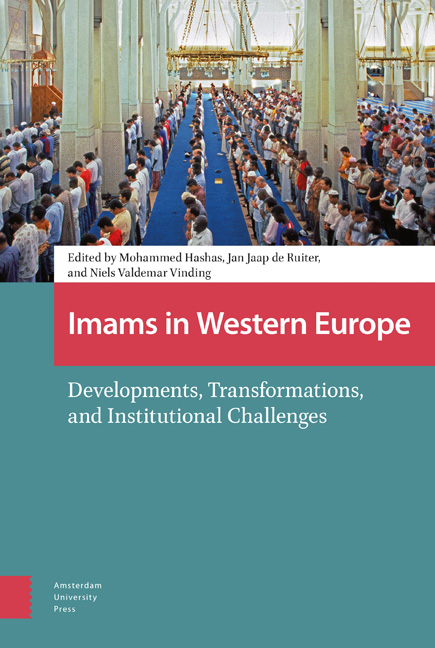15 - Muslim Chaplaincy as a Model for Imamship: From Liminality to Immanent Spirituality
Published online by Cambridge University Press: 06 January 2021
Summary
Abstract
What is the role of an imam? What is expected from an imam? How can an imam meet the expectations of the community? This chapter argues that the current state of imamship in the United Kingdom is in dire need of a model that could help imams understand and practice their role better. While there are many models available, this chapter considers the model provided by Muslim chaplaincy. It argues that current imam training is stuck in liminality; by employing an approach to spirituality (to be read as imamship) that is immanent (to be read as chaplaincy), as opposed to transcendent, imams will be better able to reconnect with their congregation.
Keywords: Islam in the United Kingdom, chaplaincy, chaplains, Darul Uloom, liminality
Introduction
You need to decide whether you are a mosque imam or a chaplain. If you believe you are a mosque imam, get the hell out of here! (field notes, 2011)
The above quotation is indicative of a possible confusion between the role of a mosque imam and the work of a Muslim chaplain. The context of the quotation happened to be a counselling session conducted by a senior Muslim hospital chaplain with a junior colleague who was facing formal disciplinary action (Ali and Gilliat-Ray, 2012, p. 90). Despite the apparent differences between the two roles, in this chapter I provide evidence that mosque imams can immensely benefit from Muslim chaplains and propose that Muslim chaplaincy is a good model for imams to follow. This chapter builds on the work of Asim Hafiz (2015) and provides support for his thesis, albeit using a different dataset and theory (that Muslim chaplaincy is a good model for imamship). The empirical evidence for the chapter comes from the dataset of a research project on Muslim chaplaincy conducted at Cardiff University between 2008 and 2011. The training of imams and the contributions of Muslim chaplains were theorized using variations of Victor Turner's ‘liminality theory’ (1967, 1991) and Sherman Jackson’s theory of ‘immanent spirituality’ (2005). From the outset it is important to mention that when I use the word ‘imam’ in this chapter, I am referring to either those mosque imams in Britain who are from South Asia and have studied the Dars-i Nizami curriculum in a traditional seminary known as a Darul Uloom, or to their British colleagues who have studied in similar institutions in the West.
- Type
- Chapter
- Information
- Imams in Western EuropeDevelopments, Transformations, and Institutional Challenges, pp. 295 - 314Publisher: Amsterdam University PressPrint publication year: 2018
- 1
- Cited by



